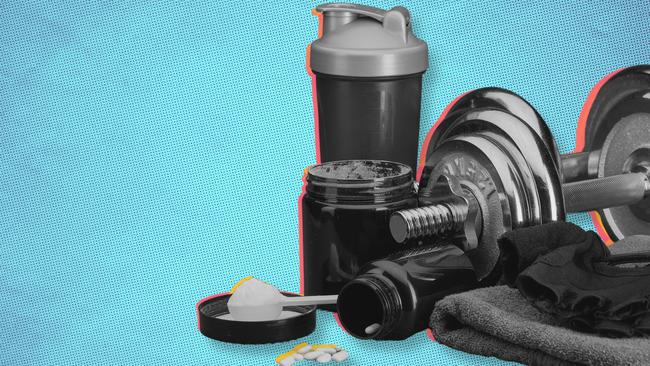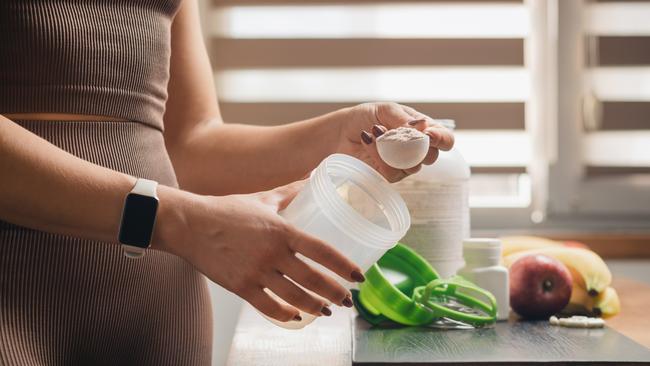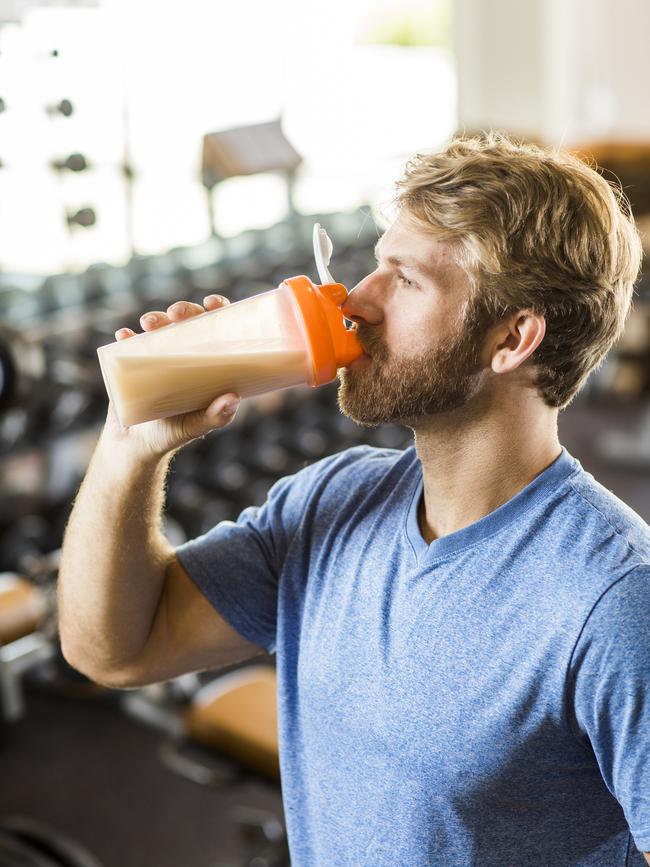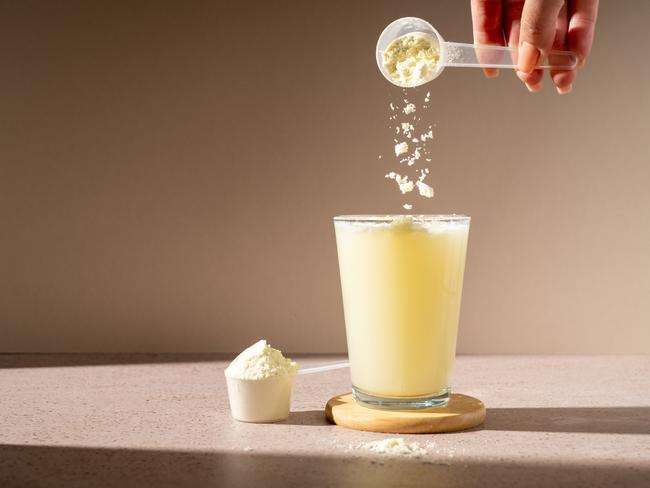Creatine may be all the rage among gym bros, but should you take it?
It may be time to rethink creatine. The popular workout supplement could be good for bone, brain and muscle health.

Creatine: It’s what’s hot – and not just among the bodybuilder set.
The popular supplement may do more than boost athletic performance and muscle mass, scientists say. It is being studied – with good preliminary results – to improve bone health, cognition and sleep and reduce depression and anxiety symptoms.
Creatine is all over social-media groups and chat rooms, discussed among everyone from middle-aged women and seniors to gym bros touting before and after pictures.
Researchers say creatine supplements are safe, with few side effects, and they are affordable. Of course, most creatine researchers have links to creatine manufacturers, serving on scientific advisory boards. They all said they take a daily creatine supplement themselves.
What is creatine?
Our bodies naturally produce creatine, synthesising one to three grams of it in our liver and brain, says Darren G. Candow, a professor and director of the Aging Muscle and Bone Health Laboratory at University of Regina in Canada.

But we need another one to three grams of creatine a day. We get more creatine from our diets, but vegetarians take note: It’s only in meat and seafood.
You need to consume a pound of meat to get two grams of creatine, says Jeffrey Stout, a professor and founding director of kinesiology and rehabilitation sciences at University of Central Florida. “Not a lot of people are eating that much,” he says.
Indeed, creatine intake has declined over the past 20 years. Enter creatine supplements.
The global creatine supplement market was valued at $1.11bn in 2024 and projected to grow to $4.28bn by 2030, according to Grand View Research. Creatine sales at the Vitamin Shoppe increased 320 per cent between 2019 and 2024, and the company even named July 9 as National Creatine Day in 2022.
Ideally, creatine supplements should be combined with exercise, namely resistance training, says Candow.
Creatine isn’t directly increasing muscle mass. It gives you the energy and strength to do extra reps, which enhances your workout and increases lean body mass, says Stout.
“Creatine is an energy supplement,” he says. When you exercise and do eight reps, creatine can give you the additional energy to do 10 to 15 per cent more, he adds.

Creatine loading is common among athletes. They quickly maximise the amount of creatine in their muscles by taking 20 grams a day for up to a week and then lower to a five-gram maintenance dose. Alternatively, people take three to five grams a day, which can take longer for the muscles to saturate.
Since 95 per cent of our creatine is stored in muscles, researchers say that to get benefits to bone and brain health, you may need to take higher levels. Candow takes 10 grams a day.
Creatine has few side effects, say scientists. If you take high doses too quickly, it can result in some weight gain. This is believed to be largely water retention that dissipates over time, says Candow. Gastrointestinal issues can also be an issue.
Impact on women
Most of the research on creatine was conducted in men. Now, researchers are trying to learn more about how creatine can affect women.
Women produce 20 to 30 per cent less creatine than men, says Abbie Smith-Ryan, a professor of exercise physiology at the University of North Carolina Chapel Hill.
Creatine in combination with resistance training can help postmenopausal women maintain bone density, a recent study found.
“That doesn’t mean it’s going to dramatically increase bone density,” says Smith-Ryan. But compared with an average woman postmenopause who is experiencing a loss of bone density over time, it has huge implications, she says.

Some doctors’ groups and pediatricians recommend against adolescents taking creatine, saying there isn’t enough research on long-term use in them.
But there is ample evidence that adolescent athletes between 14 and 17 years old – namely competitive soccer players and swimmers – have a roughly 5 to 15 per cent improvement in performance when taking creatine, says Andrew Jagim, director of sports medicine research at Mayo Clinic Health System in La Crosse, Wisconsin.
Seniors are another group that could benefit from creatine, researchers say.
Creatine improves muscle strength and lean body mass in seniors when combined with resistance training, studies have found. This is especially important for seniors who may experience a progressive loss of muscle mass and strength.
Creatine may also improve cognition and memory benefits in seniors. The cognition benefits may extend to younger groups, too.
There is early data showing people suffering from memory or cognitive impairment for various reasons, including lack of sleep, could benefit from creatine.
The Wall Street Journal




To join the conversation, please log in. Don't have an account? Register
Join the conversation, you are commenting as Logout